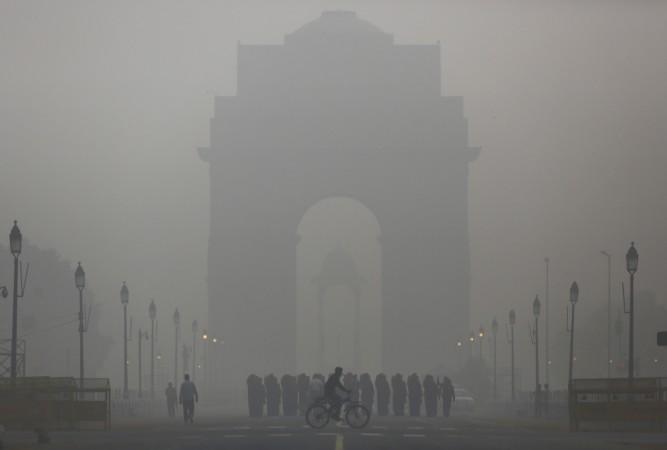
Referring to the air pollution in Delhi as 'dreaded', 'severe" and a 'disaster', the
Supreme Court on Tuesday asked the Narendra Modi government to come up with a common minimum programme in 48 hours on how to tackle the situation.
The apex court also noted the suggestions submitted by Sunita Narain, a member of Environment Pollution Control Authority (EPCA), and asked for a response from the Centre on Thursday. The court is likely to pass a detailed order after hearing the government's response.
Delhi's air quality, which has been deteriorating since Diwali due to the burning of crackers and crop stubble from farmland, has led to levels of harmful PM 2.5 particles hovering at dangerous levels that are linked to higher rates of chronic bronchitis, lung cancer and heart disease.
Assocham warns of economic effects on tourism and transportation
According to estimates by industry body Assocham, the post-Diwali pollution is likely to cripple sectors like tourism, transport, automobile and real estate in the NCR.
"While it may be difficult to hazard a figure of economic loss, since the exact period of dangerous levels of pollutants would depend on the weather conditions along with administrative measures, there is no doubt that several billions of dollars of fresh investment and GDP loss would occur," DS Rawat, secretary general of Assocham, was quoted as saying by PTI.
The immediate impact will negatively affect tourism seen in Delhi as foreign tourists visit the Golden Triangle of Delhi-Agra-Jaipur and with Delhi and NCR pollution making global headlines, it's creating an impression that visitors should avoid these places.
"Instead of the tourists dividing period of stay between Delhi, Agra and Rajasthan, there have been enquiries where the visitors can avoid Delhi, excepting the touch-down options at the Indira Gandhi International Airport in the national capital," the chamber pointed out while noting feedback from tour operators and hoteliers who are receiving requests from global tour operators to re-align the itinerary of the international tourists to the Golden Triangle.
Along with tourism, connected sectors such as transportation are also set to be affected. Both transportation and tourism are highly employment-oriented and jobs may be a casualty of the pollution, the Assocham paper noted.
"Surely, the maximum impact would be felt by the Delhi economy which had the Gross State Domestic Product (GSDP) of Rs 5,58,745 crore in 2015-16 at current prices. The GSDP of Delhi has been among the fastest growing in the country, but such a growth cannot be taken for granted," cautioned Assocham.
Rawat concluded by pointing out that Delhi's situation should be a reminder of the economic risks associated with pollution.
"If urgent steps on emergency scale are not taken, the economic impact arising out of the health issues could be catastrophic for the NCR, one of the important pillars of the national economy. Besides, this is also a wake-up call for other regions around Mumbai, Bengaluru, Hyderabad, Chennai and Kolkata," Rawat said.

















